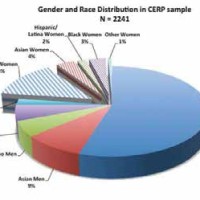Highlight on Alum, Tabitha Peck
Originally Printed in Winter/Spring 2014 Newsletter
Tabitha C. Peck is a visiting faculty member at Duke University. In the Fall, she will be taking a position as assistant professor at Davidson College in the Department of Mathematics and Computer Science. In the two years prior to coming to Duke, she was a post-doctoral researcher at the Event Lab in Barcelona, Spain, working in the European project, Virtual Embodiment and Robotic Re-Embodiment
(VERE). While involved with the VERE project her research focused on the psychological effects of virtual body-swap illusions in fully immersive virtual environments. She received her PhD from The University of North Carolina at Chapel Hill under the supervision of Professors Henry Fuchs and Mary C. Whitton. Her PhD research focused on locomotion interfaces in virtual environments and enabling people to physically walk in small spaces while walking in much larger virtual spaces. Her current research interests include virtual reality, virtual embodiment, human-computer interaction, 3D user interfaces, locomotion, navigation, system design and evaluation, and human perception.
Tabitha is an alum of the DREU program, the Grad Cohort Workshops, and the Career Mentoring Workshop (CMW). She is married to David Borland whom she met in grad school.
Q: How did you become interested in pursuing a career in computer science?
I always enjoyed computers, problem solving, and mathematics. I also very much enjoyed art. Although I appreciated art, I did not have the talent to become a great artist. When I started looking at colleges and talking to faculty I was advised to consider computer science with a focus on computer graphics as this combined my mathematics skills and appreciation for art. This is something that I never considered as I really didn’t know what computer science was. Once I started my first computer science class, I was hooked.
Q: What CRA-W programs have you participated in and how did your experience with them influence your career path?
I participated in two Distributed Research Experiences for Undergraduates, which used to be known as the Distributed Mentor Project, after both my sophomore and junior years in undergrad. I had very positive research experiences both summers, and met a life-long mentor, Victoria Interrante, of the University of Minnesota. Vicki was my first DREU mentor, and since became a member of my dissertation committee. Vicki was the person who introduced me to virtual reality, which has now become my research focus. Additionally, I meet up with Vicki at least once a year at an annual virtual reality conference.
I attended the CRA-W Grad Cohort my first two years of graduate school, and I advise every woman who goes to graduate school to attend. The Grad Cohort got me through graduate school, or at least, got me through in fewer years. The first project I worked on in graduate school was not the right fit for me. I wasn’t enjoying the project, and therefore was not making much progress. I was unhappy and frustrated with research and seriously questioning if grad school was right for me. Two days of listening to advice on how to suc-ceed in grad school, how to find a dissertation topic, and how to choose an advisor made me very aware that grad school was right for me, but that I currently wasn’t working on the correct project.
After returning from the Grad Cohort, I mustered up the courage to meet with my advisor to tell him that I really didn’t like the project I was working on. I then found out that I was very fortunate in that I had one of the most understanding advisors. Henry Fuchs, of UNC-Chapel Hill, went out of his way to help me find the correct dissertation topic for me, including meeting me for breakfast at 7am before he had to catch a train later that morning.
Last year, I attended the CRA-W Career Mentoring Workshop. The Mentoring Workshop helped me improve my teaching. A talk given by Shannon Duvall of Elon University was especially helpful in encouraging me to find my teaching style. Applying her advice paid off. Students noted in my teaching evaluations a positive change in my teaching directly after returning from the Career Mentoring Workshop.
Q: When did you decide to pursue a research career in computer science?
I always knew I wanted to pursue a research career in computer science. My path just may have been a little bumpier if I hadn’t found so many helpful advisors along the way.
Q: Any insight to share with undergraduates who might want to give research a try but don’t know where to start?
- Find a faculty member that you can talk to, and ask for advice. Faculty are people, just like you, and they are full of helpful information. My undergraduate professor, Patricia Wenner, from Bucknell University, was the one to tell me about the CRA-W DREU. Without her, I would not have had an undergraduate research experience.
- Find your passion. If you don’t enjoy a project you are working on, then it may not be the right project for you. For me, I need to know the driving application. If I don’t see a purpose in the research, then it is not the right fit for me. As soon as I see an application, I am eager to work on a project.
Q: What made you decide on your specific research area/what attracted you to the world of virtual environments?
I became interested in virtual realty during my first CRA-W DREU experience working with Victoria Interrante. I have continued with Virtual Reality because I enjoy that much of my research is interdisciplinary. I have been fortunate enough to work with computer scientists, statisticians, roboticists, psy-chologists, neuroscientists, architects, and doctors. Collaborating with people in different disciplines has challenged me to push the boundaries of the current state of the art in virtual reality and to develop new and better systems.
Q: What was your experience as a post-doctoral researcher and would you recommend this path to recent graduates?
I had a great experience as a post-doctoral researcher. I was fortunate enough to work with one of the best virtual reality researchers in the world, Mel Slater, in a beautiful international city, Barcelona, Spain. As part of my post-doc, I gained many international collaborators, and expanded my training by learning new ways to approach research that were different from my graduate training. I encourage recent graduates to look into working in different labs, because increasing your experiences and your network will only make you a better researcher.
Q: What are your future career plans?
I have recently accepted a position as an Assistant Professor at Davidson College where one of my tasks is to help develop a computer science major. I am very excited about this task and I am looking forward to developing a major that is inclusive and appealing to all students. Davidson is a great school, with great students, and provides a unique opportunity to craft a new major. The Mathematics and Computer Science departments is also very friendly and I felt very welcomed from the minute I stepped on campus. In five years, I plan to see Davidson College have a computer science major, where declared majors are a diverse set of students and 50% are female.
Q: What do you do for fun?
Outside of work, I enjoy yoga, cooking and eating, and traveling. I have currently visited 17 countries and love experiencing new cultures and trying new food.
Q: Are you involved in other activities supporting women in computing?
I am not currently involved in any official activities supporting women in computing. However, I have become the advisor to many women computer science students at Duke University. Additionally, as part of Duke, we have taken 20+ students to the Grace Hopper Celebration of Women in Computing. I very much enjoy bringing students to this Celebration and en-couraging students to continue the conversation about women in computing once we return to Duke.






